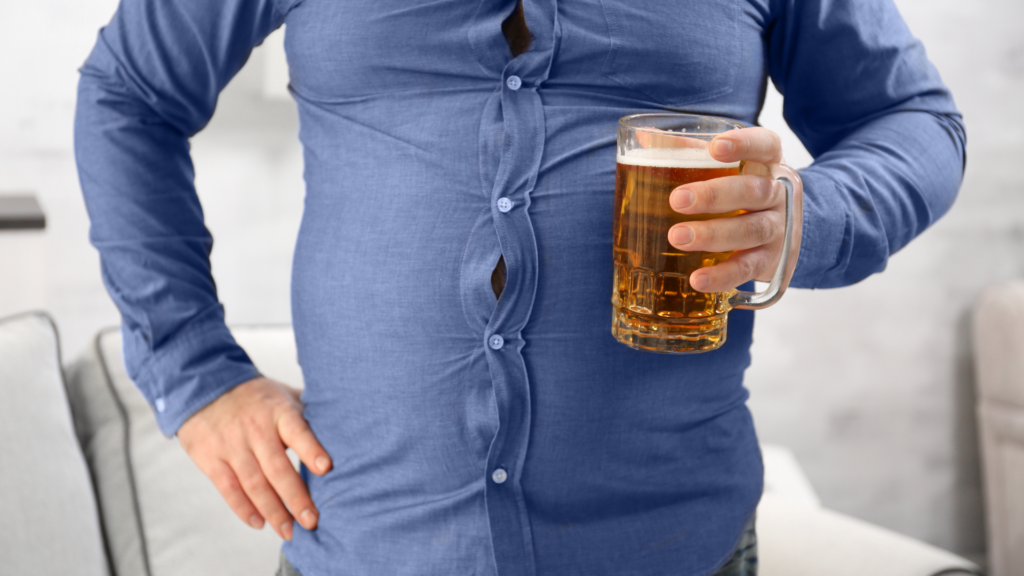The term “beer belly” has always suggested that drinking lots of beer will make you fat. While alcohol does generally contain a lot of calories and can lead to fat reserves being stored in the body if the drinker has a sedentary lifestyle, the real reason is a lot more complicated than simply saying that beer makes you gain weight.
"The term 'beer belly' comes from two things: men generally drink beer more often than women, and they mainly accumulate fat around the belly,” said Michaël Sels, head dietitian at the Antwerp University Hospital. “Only after menopause does that change in women, when they also mainly store fat around the abdomen, instead of elsewhere in their body. The cliché is that the calories from beer go straight to the belly, but it's not that simple."
Not all fat in our bodies is equal. Fat stored under the skin does not pose any health risks. However, the so-called "belly fat" or "visceral" fat that is stored around our organs does. "That adipose tissue can cause small inflammations on the spot, which poses risks close to our organs," said Sels.
The link between alcohol and weight gain
"Alcohol contains a lot of calories and if you don't use that energy, it's stored in the body as a fat reserve," said Sels. "The calories from alcohol are taken in liquid form, so even if you consume a large volume, you hardly get sated by it."
Our feeling of satiety and the production of fat in our body are regulated by various hormones. And it is precisely the processes of those specific substances that are disrupted by alcohol. "Cortisol, also called ‘the stress hormone’, is partly responsible for the production of cholesterol in our body. If we drink more alcohol, our body produces more cortisol, which in turn has an unfavourable influence on the production of fat reserves in our body."
"The effect of the ‘hunger hormone’ ghrelin and the ‘satiety hormone’ leptin is also disturbed by alcohol in our body,” added Sels. “Those who drink alcohol are therefore less able to estimate how well their stomach is or is not filled. This means that we eat more than we strictly need, on top of the large number of calories that we already consume through alcoholic beverages."
In addition, national nutrition research by Sciensano shows that we make fewer healthy food choices in our daily diet under the influence of alcohol. "Those who drink a lot of alcohol eat less fruit and vegetables on average,” said Sels. “In addition, under the influence of alcohol, we are more susceptible to so-called ‘external nutritional stimuli’ that have nothing to do with a feeling of hunger. Anyone who is out for a few drinks and passes a pita shop where it smells like fries will be more likely to eat a greasy snack."
"At home watching TV with a drink, you may see a food commercial, and this can lead to a trip to the fridge, even though you are not actually hungry. "

